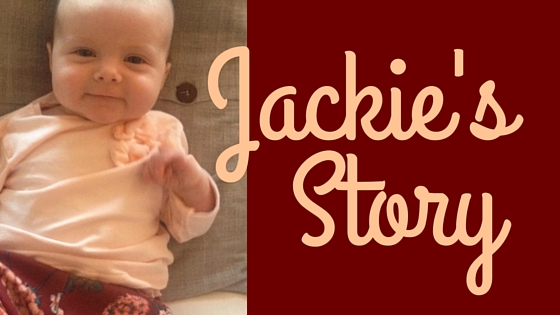
Empathy—Who’s the Focus?
One of the times in life that is supposed to be among the best and joyous turned out to be one of the most difficult for my daughter Jackie.
Jackie gave birth to a darling, healthy baby girl in late November, but by Christmas she was aware that something wasn’t right. Jackie was unable to sleep. Even though her body was exhausted, her mind just wouldn’t shut down. She learned that she was experiencing postpartum depression.
Jackie battled to stay positive and establish a routine, praying for God to give her peace and sleep. One evening, Jackie asked her sister to babysit since her husband had a meeting and she wanted to meet with some of her friends; she thought that it would be helpful to get out of the house, but it ended up being even more discouraging.
Her friends meant well, but once they learned of her situation, all it seemed they could offer was another horror story. Someone they knew didn’t sleep for two years after postpartum depression—and on and on they went. Each story seemed to “one up” the other as the attention was passed from Jackie, who needed to be heard and understood, to their stories which were not uplifting or helpful at all. Jackie needed compassionate, listening ears, and a place to be heard, but that’s not what she experienced.
Jackie left early that night, feeling unheard and even more discouraged.
Over the last few years, God has been teaching me more and more about how to listen—about the importance of asking the other person questions and focusing totally on them by listening to their responses. Of course, I may relate to their situation because of something similar I’ve personally experienced or know about, but telling my own story isn’t necessary at that time and can take the focus off of their sharing. Do I want my story to take the focus, or theirs?
A good listener is empathetic–but most of us have a hard time getting outside of our own frame of reference. When people express emotion or pain, often our knee-jerk reaction is to want to move them out of it or to fix them. We don’t join them where they are; we feel discomfort and want to hurry them to a different emotion or state of being. Rather than following the Apostle Paul’s admonition to weep with those who weep (Romans 12:15), we try to cheer them up–or at least distract them. If a problem is shared, we even may say, “I hear you. I used to struggle with that too. But now I….” and we’re off telling our story instead of staying with them in theirs. Albert Guinon, the French playwright, put it this way: “There are people who, instead of listening to what is being said to them, are already listening to what they are going to say themselves.” Empathy offers comfort, not pat answers, and tries to understand and even experience the other person’s feelings.
– From Q Place’s The 9 Arts of Spiritual Conversations: Art of Listening 3.2
What might happen for another person if we began to act out of a new awareness that God often puts us in situations just to listen, truly hear what someone else is saying, and understand them? What an encouragement we could be to them! And also, how much better able would we be to pray appropriately for them?
Who has God put in your life to love through listening?
May you truly take the time to listen well! Really hear this person’s story and begin to understand so that you can pray more specifically. And as you pray, listen to God, too. He will guide your words and actions so that your friend who is struggling will be truly encouraged.
Jan Teat
Q Place National Field Support Leader

I know I often did the same thing–trying to cheer people up or tell them my story! My whole perspective changed when I battled cancer–oh the horror stories people told me! Jackie is blessed to have such a wonderful mother, and I will be praying for her.